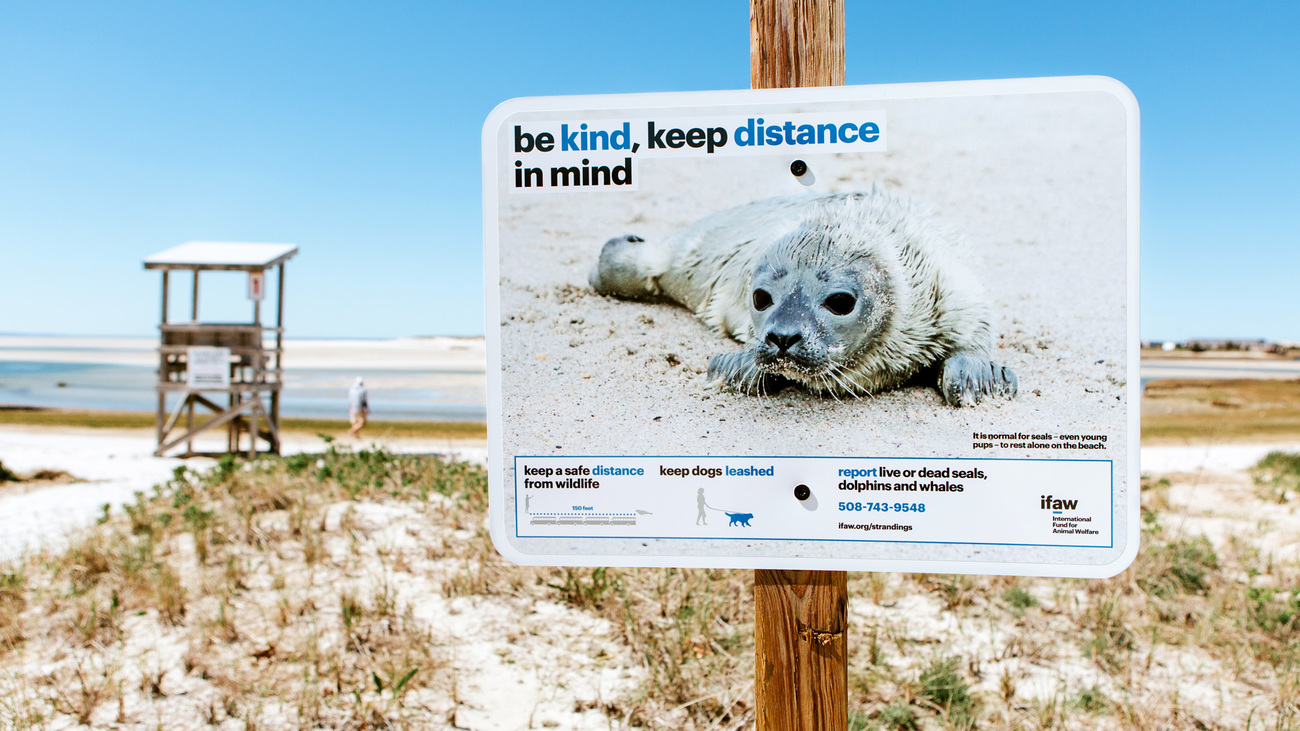Predator Coexistence - United States
Coexistence is a better existence for allbeach sign initiative inspires coexistence with seals on Cape Cod
beach sign initiative inspires coexistence with seals on Cape Cod

(Cape Cod, MA – May 26, 2021) -- Beachgoers will spot new signs across Cape Cod beaches this summer, a lesson in human-animal coexistence facilitated by the International Fund for Animal Welfare (IFAW), whose international operations center is located in Yarmouth Port, MA.
A total of 100 signs have been distributed to 14 towns and the Cape Cod National Seashore. Through greater awareness of seal behavior and habitat, the initiative aims to inspire community conversations around coexistence rather than conflict, understanding how to live harmoniously with wildlife in a human-dominated world.
“As tourism begins to increase here on Cape Cod and on other New England beaches this month, it’s also a perfect time to acknowledge the busy season for harbor seal pups,” says IFAW animal rescue officer Misty Niemeyer. "In most cases, a seal laying on the beach is displaying completely normal behavior, and interacting with them can be detrimental to their health.”
The new signs contain quick and helpful information for beachgoers, including the federally mandated Marine Mammal Protection Act recommendation to stay 150 feet away from the animal - for your safety and the animal’s - and an immediate link to IFAW’s stranding hotline and resource information. Here IFAW provides tips to help understand seal and seal pup behaviors, possible signs of distress, and how to help.
“Seals like to sunbathe just like people do. They come ashore to thermoregulate, digest a meal, and to rest. They are semi-aquatic animals and do not need to be wet,” confirms Niemeyer. “While they move quite awkwardly on land and are much more adept in the water, they can and do move far up the shore and are able to return to the water when they are ready,” she adds.
A reminder to respect wildlife
The idea for the signs came through in a series of workshops IFAW attended alongside Cape Cod National Seashore staff, regional network members and the National Oceanic and Atmospheric Administration (NOAA). Seals are an integral part of the coastal ecosystem, and with more than 100 seal awareness signs now appearing at beaches across the region, the importance of healthy coexistence with these animals is clear.
"Observing seals resting on beaches and sandbars is a wonderful wildlife viewing opportunity. These compelling signs provide a reminder to watch from a respectful distance, helping to ensure visitor safety and preservation of wildlife values,” says Brian Carlstrom, Superintendent at the Cape Cod National Seashore.
Most people who approach seals on the beach are trying to be helpful, but keeping seals and their pups safe can be as easy as giving them space and calling the experts from a stranding network.
IFAW’s Marine Mammal Rescue & Research team is available seven days a week to respond to reports of seals, dolphins or whales in distress, and the team is supported by a robust network of more than 220 trained volunteers across the region.
Related content
Our work can’t get done without you. Please give what you can to help animals thrive.